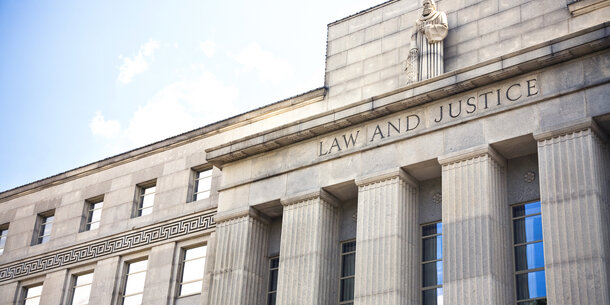Investigation Finds 131 Federal Judges Failed to Step Aside from Cases Despite Financial Conflicts
“More than 130 federal judges have violated U.S. law and judicial ethics by overseeing court cases involving companies in which they or their family owned stock,” according to an investigation by the Wall Street Journal published on September 28.
The investigation found that 129 federal district court judges and two federal appellate judges failed to step aside from 685 cases in which they had a financial conflict from 2010–2018, and in those cases, about two-thirds of the rulings were in the judge’s or their family’s financial interests.
While federal judges are not barred from holding individual stocks, they are prohibited by both federal law and federal judicial ethics rules from hearing cases in which they, or a close family member, have a financial conflict.
Democrats on the House Judiciary Committee released a statement on September 29 calling the investigation’s findings “a massive failure not just of individual judges but of the entire system that is ostensibly in place to prevent this illegal conduct” and announcing plans to introduce legislation and hold public hearings on the subject.
President Biden Announces Eighth Round of Judicial Nominees
On September 30, President Biden announced ten more federal court nominees, bringing the administration’s total number of nominees to 53. Biden also announced four nominees to serve on local D.C. courts.
Biden’s eighth slate of nominees includes two civil rights lawyers and three current or former public defenders. Several of the nominees, if confirmed, would also mark historic firsts: the first Asian American man on the Western District Court of Washington, the first Asian American woman on the Southern District Court of California, and the first Hispanic district court judge in Ohio.
According to CNN, more than 25% of Biden’s nominees to date are Black, 21% are Hispanic or Latino, and 23% are Asian American or Pacific Islanders. Close to 75% are women. In addition, 32% of Biden’s judicial nominees are former public defenders and 25% are civil rights lawyers.
Biden is confirming judges at a rate faster than any other president at this point in their term since Richard Nixon, according to Bloomberg Law. Sixteen of Biden’s judicial nominees have been confirmed so far.
New York Court Employees Sent Home Due to Vaccine Noncompliance
On September 28, New York State court administrators sent “a number” of employees home, including three judges, for failing to comply with the court system’s vaccine mandate that went into effect on September 27, according to Law360.
Law360 reports that as of 5 p.m. last Tuesday, “just over a thousand employees had applied for either religious or medical exemptions, and 333 people, making up about 2% of all state courts employees, were not in compliance with the vaccine mandate.”
Over half of the 15,650-employee state court system is currently shielded from the vaccine mandate as a result of lawsuits filed by half a dozen unions, according to Law360. And as of October 6, “86% of court employees have submitted proof of vaccination or applied for a medical or religious exemption.”
One judge on the New York Court of Appeals, the state’s highest court, is among the noncompliant employees and has been appearing in court remotely. Union representatives have criticized the “double standard” that unvaccinated judges are working from home while other court employees could be put on unpaid leave or terminated for their noncompliance.
New Jersey Supreme Court to Hold Conference on Implicit Bias in Jury Selection
On September 28, the New Jersey Supreme Court announced it will hold a conference in November to study implicit bias in jury selection, including the use of peremptory challenges in criminal trials.
The conference follows the high court’s July ruling in which it found “implicit or unconscious racial bias infected the jury selection process” in Edwin Andujar’s 2017 murder trial after prosecutors ran a criminal background check on a prospective Black juror, identified as F.G., leading to his arrest.
In that case, the trial judge rejected the state’s attempt to remove F.G. for having “an awful lot of background” with the criminal system, prompting prosecutors to run a background check that revealed F.G. had an open warrant. F.G. was dismissed and arrested on the warrant, although an open warrant does not bar someone from jury service in New Jersey.
“Courts, not the parties, oversee the jury selection process,” said the court’s unanimous July ruling. “Going forward from today, any party seeking to run a criminal history check on a prospective juror must first get permission from the trial court.”

